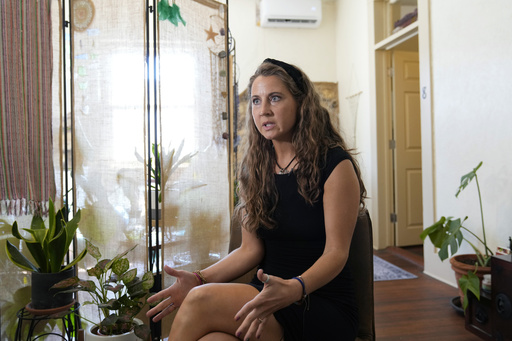Bleeding and suffering, Kyleigh Thurman faced a devastating situation with her pregnancy but was unaware of the life-threatening risks it posed. In a distressing incident at Ascension Seton Williamson in Texas, doctors discharged Thurman without treatment for her ectopic pregnancy, advising her to let nature take its course. When she returned three days later still bleeding, doctors administered a late injection, ultimately resulting in a ruptured fallopian tube and significant damage to her reproductive system. Thurman and the Center for Reproductive Rights recently lodged a complaint to investigate whether the hospital violated federal law in handling her case. She described the experience as being left to flail and feeling misled.
Despite public warnings from the Biden administration to hospitals regarding the treatment of pregnant patients during emergencies, facilities across the country have been found to be in violation of federal law. An analysis by the Associated Press revealed that over 100 pregnant women in medical distress seeking help from emergency rooms since 2022 were turned away or negligently treated. Shocking incidents include women being left to miscarry in public restrooms, going into septic shock, and encountering difficulty receiving treatment for ectopic pregnancies. The White House has stressed the importance of hospitals offering necessary abortions to safeguard women’s health, despite state bans challenging this guidance.
In Texas, where doctors face severe penalties for performing illegal abortions, the complexity around emergency pregnancy care has intensified due to state laws. While the law excludes termination of ectopic pregnancies from the definition of abortion, the fear of legal repercussions impedes doctors from providing essential care to patients with ectopic pregnancies. The Center for Reproductive Rights emphasized the conflict between state abortion bans and federal law, highlighting the potential consequences hospitals face for violating federal regulations.
Diagnosing an ectopic pregnancy can be challenging, as medical professionals may not always pinpoint the pregnancy’s location on an ultrasound. Various indicators such as hormone levels, bleeding, positive pregnancy tests, and visualizing an empty uterus on ultrasound may suggest an ectopic pregnancy. Nevertheless, the uncertainty surrounding accurate diagnosis adds to the complexity of timely intervention to prevent life-threatening complications. In Thurman’s case, delayed treatment led to a ruptured fallopian tube, putting her life at risk.
The incidents of neglect and malpractice surrounding emergency pregnancy care extend beyond states with abortion bans. Shortages of nursing and medical staff, inadequate resources for timely ultrasounds, and staffing challenges exacerbated by COVID-19 have created unsafe conditions for pregnant women seeking emergency care. Dara Kass, an emergency medicine doctor and former U.S. Health and Human Services official, voiced concerns about the growing risks pregnant women face in emergency rooms due to staffing shortages and evolving abortion laws.



